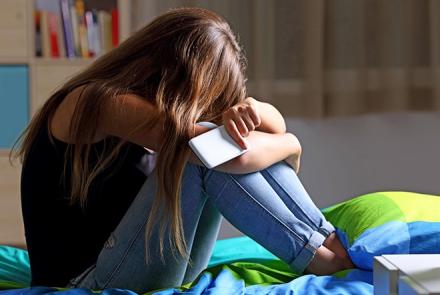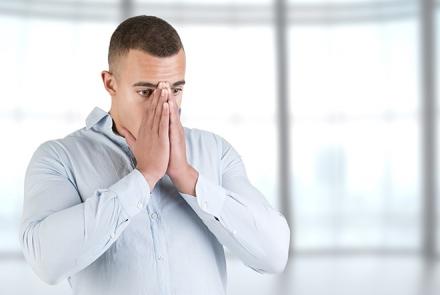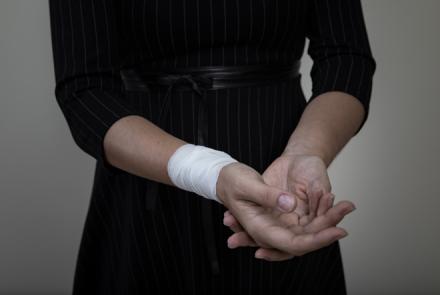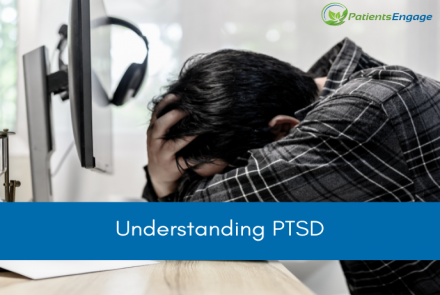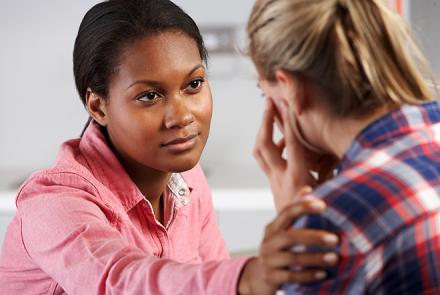
The COVID-19 pandemic has disrupted lives and livelihoods and is causing a lot of stress and anxiety. Psychotherapist H'vovi Bhagwagar advises people on how they can learn to accept uncertainty and channel unproductive worrying into problem solving.
As humans, we find safety in predictability and certainty. We prefer having information about our family’s whereabouts, making a list before going shopping and knowing we have a stable job. The COVID-19 pandemic has made life uncertain and unpredictable. There is uncertainty over the economy, employment, finances, relationships, and of course, physical and mental health. We don't have a road-map. We don't know where we are heading. And when people are faced with this level of ambiguity and uncertainty, it can be stressful.
One of the ways people try to control uncertainty is through the process of worrying. Worrying is usually a healthy and productive endeavor, especially when problems seem to be within our control. Worrying about the future, and mulling over problems can make it seem like we have some control over uncertain circumstances. But excessive worrying is harmful and persistent; the person cannot stop thinking about “what ifs” and worst-case scenarios, and the worrying interferes with their daily life. People who cannot tolerate uncertainty are whom we casually refer to as “worriers”. Those who constantly:
- Feel restless or keyed up
- Get fatigued easily
- Find it tough to focus/concentrate or then blank out at important moments.
- Have regular unexplained muscle tension
- Have regular sleep disturbance
Researchers Michel Dugas and Robert Ladouceur have done extensive research on the experience of worrying, and find that chronic worriers have certain things in common:
- They exhibit a “negative problem orientation”, that is, they believe that problems are bad, and that life should not have problems. When faced with any problem they spend more time worrying that the problem occurred, rather than solution seeking. They might think “This Pandemic should never have happened!”
- They also have believe that worrying is beneficial. The falsely believe that worrying keeps them prepared, or that worry helps them find a solution to problems, or that worrying equals to caring. They may believe “If I worry that I will be asked to leave my job, then I will be prepared”. Such beliefs act as reinforcement, trapping them in a constant cycle of worry and anxiety.
- Worriers also engage in “cognitive avoidance”, that is trying to avoid thinking about problems. This may be surprising because worriers are usually thought to be “overthinkers”. However due to the excessive anxiety, they remain caught in ruminating about the problem situation, and avoid reflecting on feelings, or ideas that can help them solve the problem. For eg: a student worrying about not getting admission to a coveted college may exhibit cognitive avoidance and not direct her energy towards problem solving such as “What is an alternative plan? How can I seek help if I don’t get admission to this college?”
How to start tolerating uncertainty
Albert Einstein said, “As far as the laws of mathematics refer to reality, they are not certain; and as far as they are certain, they do not refer to reality.” Uncertainty is one of the inevitabilities in our lives, and is also beyond our control. Trying to control uncertainty by constantly worrying leaves the person in a perpetual state of stress. The way to manage intolerance of uncertainty is by learning to be more mindful and tolerant of uncertainty.
Let’s begin with the toughest step: Challenging the need for certainty. Most certainty-seeking behaviors fall into two categories: The person engages in excessive “approach” (such as constantly seeking reassurance) and/or engages in excessive “avoidance” (delaying or procrastinating important activities). Reduce your urge towards approach or avoid behaviour and adopt a balanced approach. Recognize that none of these behaviours finally solve the problem, they only provide temporary relief.
The next thing to do is: Stop seeing worrying as essential. Ask yourself the following: Do you actually solve your problems by worrying? Or are you just rehashing them in your head? Learn to distinguish between worrying that is productive and solution-focussed, versus worrying that is unproductive and problem-focused.
|
Productive worry |
Unproductive worry |
|
Focussed on immediate realistic problems |
Focussed on distant abstract problems |
|
Can try out solutions and shift if not successful |
Cannot accept solutions that do not guarantee success |
|
Willingness to tolerate risk and uncertainty |
Relentless pursuit of safety and certainty |
|
Higher levels of self-reliance in coping |
Perceived helplessness to cope with outcome |
The next thing to do is start being mindful of your unproductive worries. For example, 3 times a day stop what you are doing and jot down your worries. Categorize the worries as being about current problems or hypothetical situations. For example, “Am I worried because my job is actually in danger or am I worrying because my friend lost his job?”
After this, you might be ready to take small, calculated “risks” so that you start approaching the fearful situation, but cautiously. For example, you may find it less anxiety-producing to attend a webinar that discusses ways to Manage an Economic Crisis, versus putting up your updated resume on job sites.
When you feel comfortable with the small steps that you have taken to tolerate uncertainty, gradually try more difficult things. For example, talk to a friend or batchmate about finding a new job
REMEMBER: When you accept uncertainty, it doesn’t mean you do not stay prepared for eventualities. It’s important to have a plan for some things, such as having a strategy for home quarantine, or investing in insurance policies. All these are healthy emergency plans. However, despite these plans it is important to accept that one cannot prepare for every possible scenario. Life is too random and unpredictable.
By becoming more tolerant of uncertainty, you can let go of all the problems associated with being intolerant. You also realize that you can be so much more empowered and self-reliant because you will gradually also realize that YOU CAN deal with things, even when life is so uncertain.

H'vovi Bhagwagar is a Psychotherapist in private practice at her clinic, “MANASHNI” at Powai, Mumbai. She writes to spreads awareness about mental health through her blog and articles
(Adapted from “Anxiety BC” and the “CBT for Anxiety” Training from the Beck Inst., Philadelphia.)


